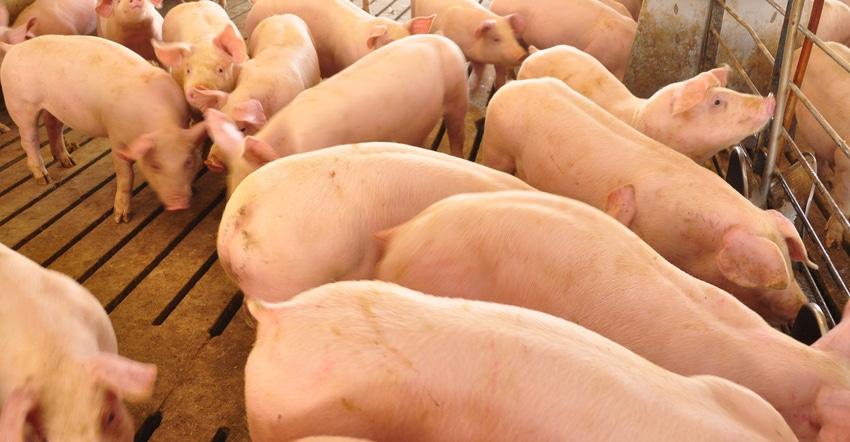April 11, 2018

China on April 2 responded to President Donald Trump’s recent steel and aluminum tariffs by placing retaliatory tariffs on 128 U.S. products, including pork. Thus, an additional tariff of 25% was slapped on U.S. pork exports going into China.
On April 4, China responded to U.S. sanctions with duties on $50 billion of U.S. products, including soybeans, beef and corn. On April 5, the U.S. responded as Trump proposed an additional $100 billion in trade sanctions on Chinese goods. That’s on top of the $50 billion in tariffs on flat-screen TVs, steel, aluminum and more than 1,000 other products.
Hardest hit was the hog market, which declined to a 16-month low April 4 after the news broke. China is a major buyer of U.S. pork. The 25% tariff on pork will slice into sales of U.S. pork meat to China.
Tariff on pork exports to China already in place
The 25% tariff on pork has already been put in place and will cost Iowa, the nation’s top pork producing state, $400 million from declining prices, says Dermot Hayes, an Iowa State University ag economist. If China responds with $100 billion in new tariffs, it will cover most all U.S. products.
Last year the U.S. exported about $130 billion worth of products to China, leaving the U.S. with a $375 billion trade deficit. Hayes says China is targeting Trump supporters with its agricultural tariffs, especially tariffs on soybeans. “China is clearly putting politics over economics,” he adds. “China is a country that needs U.S. soybeans.”
China imports about 60% of the world’s soybeans, last year buying $14 billion worth from U.S. growers. About every third row of soybeans planted in Iowa is exported to China. Iowa ranked second nationally last year in soybean production.
Iowa manufacturing affected
On April 5, Trump directed U.S. Ag Secretary Sonny Perdue to “use his broad authority to implement a plan to protect American farmers and agriculture.” No details were yet available on Perdue’s plans. Meanwhile, the tariffs are rippling into Iowa manufacturing as well as farming.
Iowa is home to large ag equipment manufacturers such as Deere, Kinze and Vermeer, and seed companies such as Pioneer, a unit of DowDuPont’s Corteva Agriscience. Officials of these companies have expressed concern that the proposed tariffs would hurt profits, which are tied to the economic health of farmers. U.S. farm income has declined about 50% since 2013; U.S. tariffs on steel and aluminum will push the price of farm machinery higher.
26% of U.S. pork exported in 2017
Neil Dierks, CEO of the National Pork Producers Council, headquartered in Des Moines, issued the following statement regarding China’s tariffs on U.S. pork.
“We are disappointed that China has placed an additional 25% tariff on U.S. pork exports. Exports are extremely critical to the financial well-being of our producers. Over the past 10 years, the United States, on average, has been the top exporter of pork in the world, and we’re the lowest-cost producer. In any given year, we export pork to more than 100 nations, and those exports support 110,000 American jobs. Last year, nearly $6.5 billion of U.S. pork was exported, which was more than 26% of U.S. pork production.
“China was the third-largest value market in 2017, with more than $1 billion in U.S. pork being shipped there last year. We recall that not long ago there was serious talk about termination of the U.S.-Korea Free Trade Agreement,” Dierks said. “We are pleased that the U.S and Korea were able to recently reach an agreement that has not prejudiced U.S. pork producers or other sectors of U.S. agriculture. We recognize that the U.S. and China are now negotiating to try to resolve this situation, and we are hopeful that the 25% tariffs on U.S. pork will be short lived.”
NPPC continues to advocate for resolution of trade disputes with China and for the successful renegotiation of NAFTA. For NPPC’s full statement on Chinese tariff actions, click here.
Source: National Pork Producers Council
You May Also Like




